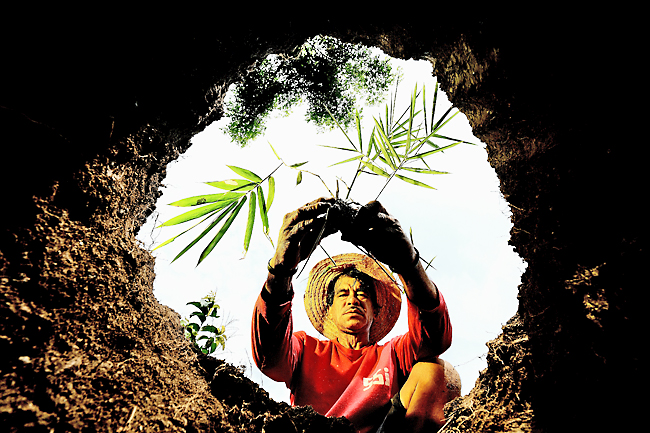Danial Norjidi
The world celebrates International Day of Forests not just to recognise the importance of healthy forest ecosystems in daily lives, but also to serve as a reminder of the urgency to protect and conserve this overdrawn natural resource, according to the ASEAN Centre for
Biodiversity (ACB).
In a press statement issued in conjunction with the occasion, marked on March 21, the ACB said, “The tropical forests of the ASEAN are vital to global environmental sustainability and stability.”
“A biodiverse region that boasts high levels of species endemicity, the countries of the ASEAN harbour over 200 million hectares of forest, encompassing at least 60 per cent of the world’s tropical peatlands and over 40 per cent of mangroves. These forests are critical habitats to diverse forms of plant and animal species, many of which are found nowhere else in the world.”
The statement said the ecosystems generously provide food, fresh and clean water, medicine, shelter, and also serve as sources of energy.
“By stabilising climate, regulating the emergence and spread of novel diseases, purifying air and water, and preventing soil erosion, intact forests directly contribute to human health and safety. Spiritual enrichment, cognitive development, and recreation are also among the non-monetary benefits provided by the aesthetic and cultural values of forest ecosystems.”

However, the ACB added that despite the benefits, the ASEAN reported major forest declines during the last four decades, losing almost half of its total forested areas due to persistent anthropogenic drivers.
“While the rate has slowed down, if not abated, the degradation of forests in the region will result in grave challenges, both for people and biodiversity.”
The statement mentioned that a report on the State and Outlook of Agroforestry in ASEAN (2021) concludes that environmental disasters in the region cost over USD 122 trillion from the year 2000 to 2020, affecting over 324 million ASEAN people.
“In a region where half of the population directly or indirectly depend on forest resources, restoring the health and wealth of the ASEAN’s forest ecosystems is a crucial step towards nature-positivity.”
Noting this year’s International Day of Forests theme, ‘Forests and Sustainable Production and Consumption’, the ACB said it joins the ASEAN member states in their commitment to promote the restoration and sustainable use of forest ecosystems.
“With the launch of the ASEAN Green Initiative (AGI), the region recognises the great importance of nature-based solutions to combat desertification, biodiversity loss, and land degradation.”
The ACB explained that the initiative aims to recognise ecosystem restoration efforts in the region, targetting at least 10 million native trees to be planted and nurtured across 10 ASEAN member states over 10 years.
“The numbers 10-10-10 is the region’s collective commitment to support the United Nations Decade on Ecosystem Restoration from 2021 to 2030. The AGI emphasises the importance of harmony between people and nature, ensuring that initiatives are ecologically sound, sustainable, compliant with existing national policies and institutional mechanisms, and beneficial to local communities.”
“As the ASEAN gears up for economic recovery, we continue to take guidance from our leaders and various stakeholders as we reconcile how economic growth and biodiversity conservation are to be seen as complementary sides of one coin.”
The statement highlights that nature-based solutions, such as nurturing native tree species and ensuring plant and crop diversity, are poised to provide greater short- and long-term ecological and economic benefits for people and nature.
It said that, based on recent scientific studies, cases in the region that exemplify the use of multipurpose trees on land near forest habitats, have contributed to the offsetting of local dependence on natural forests while maintaining local biodiversity and supporting the conservation of water and soil.
The ACB added, however, that restoring the health and wealth of the region’s forest ecosystems require a whole-of-society approach.
“Hence, the AGI aims to recognise greening initiatives of any scale – be it a large-scale tree planting activity initiated by an organisation or a small-scale tree planting activity organised by the youth in an ASEAN community.”
“In the face of the multiple challenges we are currently facing, we are encouraging everyone to plant and grow a tree and be part of a regional call for collective action to make ASEAN greener and healthier than ever.”







